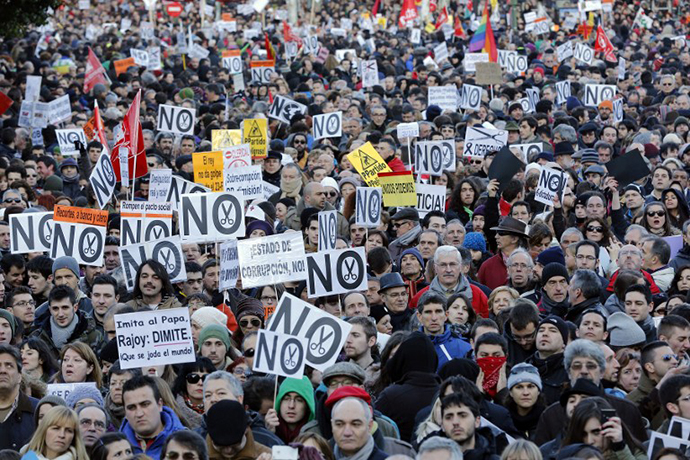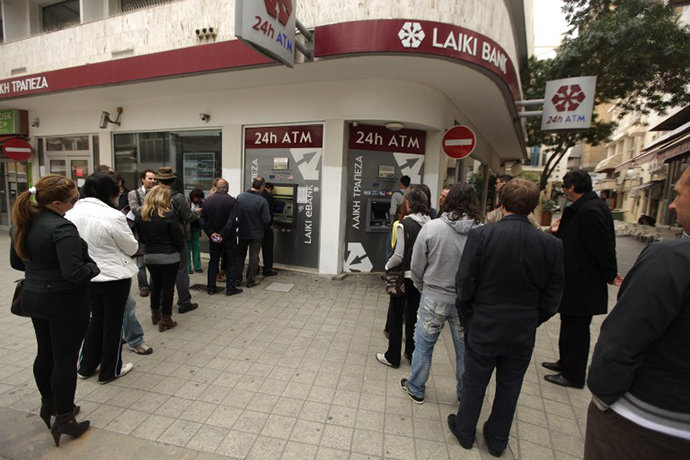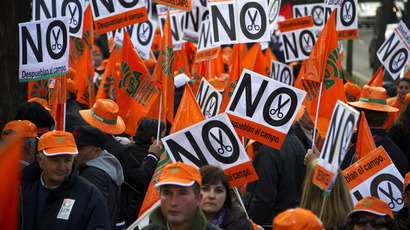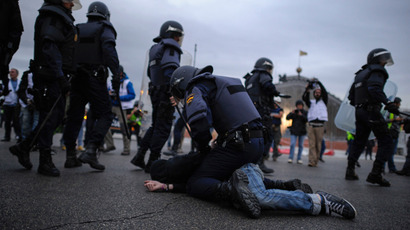Austerity belt: Looking for the best size

As Europeans become increasingly outraged with draconian cuts at home, officials have started to speak about the need to ease the austerity measures. Now the question is how to come up with a middle ground between cuts and economic growth.
Officials across Europe have begun talking about the need to soften the measures adopted by the debt – ridden economies as a security for financial help from the troika of international creditors - the International Monetary Fund (IMF), the European Commission (EC) and the European Central Bank (ECB).
The latest from French Finance Minister Pierre Moscovici, said that the country was about to finish its austerity, shifting the focus to growth.
“We’re witnessing the end of the dogma of austerity” as the only tool to fight the euro debt crisis, Moscovici said on Europe 1 radio. “Austerity on its own impedes growth,” he added.
The current trajectory of austerity had "reached its limits” as European Commission chief Jose Manuel Barroso put it.
“…in the early phase of the crisis, it was essential to restore the credibility of fiscal policy in Europe... Now, as we have restored the credibility in the short term, that gives us the possibility of having a smoother path of fiscal adjustment in the medium term,” explained Olli Rehn, the EU commissioner for economic and monetary affairs.
‘Cut or grow’ dilemma
Official say that economic stimulus, not painful cuts, are needed to make the indebted countries grow again.
“An economy is recovering only provided stimulus to speed up growth is there,” Martin Schulz, from the European parliament, told Belgian newspaper L'Echo in an interview.
A usual deficit reduction mix includes higher taxes and lower spending. The aftermath of such belt tightening keeps knocking the citizens for six. The unemployment rate in the EU reached its all-time high of 12.1% in March 2013, which is making some people across the affected countries take to the streets to express their outrage at the measures.
Slovenia, Spain and Portugal are the most recent “hot points.” Protesters flooded Ljubljana, Madrid and Lisbon to voice disappointment with the troika of international lenders, whom the public are increasingly blaming for the economic hardship in their countries.
“Troika means austerity and we have been experiencing for more than a year and a half the austerity measures which have destroyed every good prospect of social state, of welfare state. Now we have over a million and a half unemployed,” said Joao Camargo, an anti-troika activist in Portugal.
“… it does seem clear that much of Europe has cut too deeply and this has killed growth, so completely there will be no recovery. So, some easing does seem appropriate,” Ben Aris, editor-in-chief at Business New Europe, told Business RT.

A reasonable balance between cuts and growth stimulus is what should be a way out, Aris said. “The trouble is that no one knows where this balance lies. We are in uncharted territory now and everyone is feeling their way,” he concluded.
Banking union for the Union that’s banking
The idea to set up a banking union – a joint banking supervisor for the 17–nation eurozone financial system – to stabilize the area’s economy has been a point of heated debate. While experts agree the body is necessary to settle the turmoil, so far there’s little progress on the way to make this idea come to life.
“It [setting up a banking union] is a start, a step towards full fiscal as opposed to just monetary union in Europe, as the lack of a fiscal union is at the heart of the problems today,” Aris explained.
Mariano Rajoy, Spanish Prime Minister, and Enrico Letta, his Italian counterpart, agreed that the final decision on the banking union should be made as soon as the June European Union summit.
A banking union could have also helped to sidestep the Cyprus crisis, where savers lost much of their deposits and paid for the island’s mistakes. Looking to meet the requirements from the troika and fund its financial shortfall, Cyprus authorities introduced a levy ranging between 30 and 40 per cent on depositors’ holdings above 100,000 euros.

The Cyprus precedent may frighten people in southern Europe away from bringing in amounts above the insured limit of 100,000 euros to banks. So far there hasn’t been a massive withdrawal from bank accounts across Europe, but one can’t deny the danger of a so-called “deposit exodus.” Weighing on the banks’ credit capacity, this may become a real drag on economic growth.
So far the European Central Bank and Germany – the biggest economy in the euro area – are at odds over how to set up a banking supervisor. While ECB executive board member Yves Mersch insists that a centralized authority to unwind failing banks would be needed in addition to the very union, German Finance Minister Wolfgang Schaeuble says the new authority would necessarily require changes to the European Union's treaties, which will take time.
“However, it is a half measure. Still, politically speaking it is about the most the politicians in Europe can hope to get through at the moment,” Ben Aris concluded.














